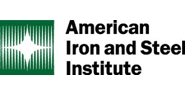Government/Policy

September 17, 2020
AISI: China Must Comply with WTO Obligations
Written by Sandy Williams
“More than 18 years after it acceded to the WTO, China continues to fail to comply with its WTO obligations,” stated the America Iron and Steel Institute in comments to the U.S. Trade Representative regarding China’s compliance with World Trade Organization rules.
In a 44-page letter to the USTR, AISI claims there is overwhelming evidence that China has “abandoned its policy of liberalizing its economy” and instead continues to “adhere to a policy of state capitalism that is antithetical to the principles of free and fair trade.”
Key Points of AISI’s Argument:
The U.S.-China trade relationship is taking a toll on U.S. manufacturers. As of 2019 data, the annual trade deficit with China remains 312 percent higher annually than it was in 2000, just before China joined the WTO. Concurrently, U.S. manufacturing employment from 2000 through the beginning of 2020 (pre-pandemic), declined by 4.5 million jobs.
Annual Chinese raw steel production increased by 868 million metric tons from 2000 through 2019, made possible largely by massive government subsidies.
The Chinese government continues to exert significant control over operations and management of state-owned enterprises despite pledging to abstain from influencing commercial decisions.
The government has inappropriately aided steel producers in securing raw materials and to manipulate raw material prices, creating an unfair advantage over U.S. competitors.
Although labeled a currency manipulator by the U.S. Treasury Department, China continues to exert significant control over its currency.
China continues to infringe on intellectual property rights, violating its commitment to the WTO to protect IPR and not raise technical and other non-tariff barriers to trade.
Because China has not fully complied with its WTO obligations, the U.S. is right to treat China as a non-market economy for the purpose of U.S. antidumping and circumvention duty laws.
Conclusion
“This is the seventeenth submission of AISI documenting China’s failure to comply with its obligations under the World Trade Organization,” said AISI in its concluding remarks. “When AISI made its first submission to USTR in 2004, China produced 280 million MT of crude steel and held a global market share of 26.2 percent. This year, China is expected to exceed one billion metric tons of crude steel produced, despite predictions that China’s steel demand had peaked in 2014. Meanwhile, China’s share of global production now exceeds 50 percent and continues to increase unabated, despite massive declines in demand from the COVID-19 public health and economic crisis.
“As detailed throughout this submission, China has used massive subsidies and other trade distorting measures that are in violation of its WTO obligations to provide an unfair advantage to its steel industry. Ongoing dialogues between the United States and China regarding these problems have not been successful in bringing China into compliance. AISI therefore continues to support the Trump administration’s aggressive approach to pressing China to end its trade-distorting policies and practices and comply with all of its WTO obligations.”







